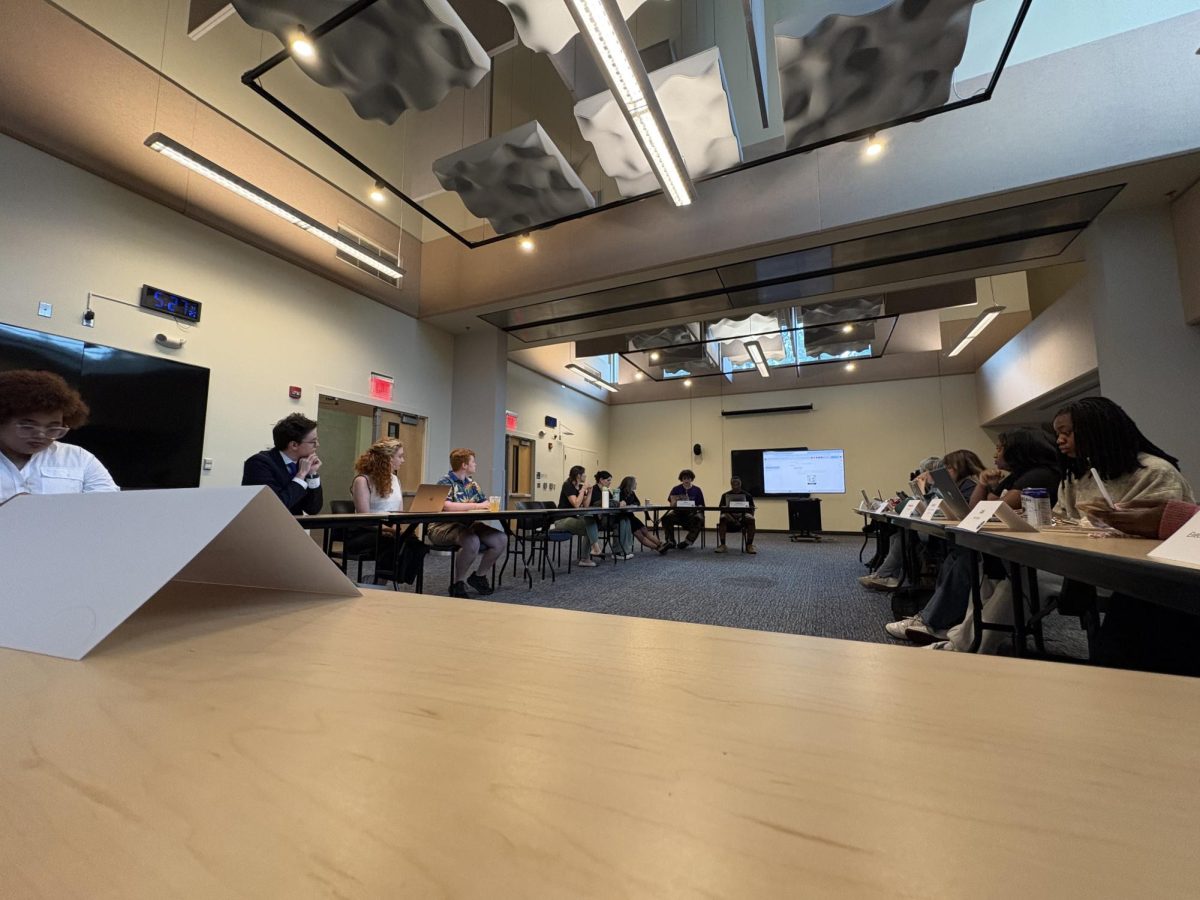By Alex Milstein – [email protected] – Staff Writer
A second recent case of stalking on the UNC Asheville campus encourages students, faculty and staff to tell anyone if they see the potential for stalking.
According to Eric Boyce, chief of police, this second incident did not involve a UNCA student, but rather an employee.
“The new one is a non-student case,” Boyce said. “It was an employee who just wanted to report information, but they didn’t want to do any follow up on it.”
Boyce said this was mainly just to document the event happened, and that’s why the case is now closed and cleared. Campus police, according to Boyce, continues to investigate the first case of stalking.
“This is a little different than a report from a student. Students were not involved in this incident at all. It was just sort of an FYI from an employee, just so we are aware,” Boyce said.
Boyce said a report from a UNCA employee does not strike him as unusual.
“We encourage both students and employees, if something occurs that could potentially affect you in your workplace environment, to let someone know. It’s always a good step. We can offer some safety planning and some suggestions, but it’s not unusual for us to receive information from anyone on this type of thing,” Boyce said.
According to Boyce, safety planning is the main goal of campus police, and action by campus police depends on the choice of the victim.
“Depending on what the victims’ wishes are, we pursue with an investigation according to what they want to see. It’s always good for anybody on campus to let us know if anything is going on. We can keep that confidential if they don’t want that shared or investigated, but safety planning is very important, and we try to provide that,” Boyce said.
Melanie Fox, director of residential education, said stalking rarely becomes an actual problem on the UNCA campus.
“Stalking is not something I commonly hear about,” Fox said. “On average, I would say we hear one to two cases per year through the Citizenship Education process. New federal legislation called the Violence Against Women Act has been put in place to assist victims of stalking, and now, this year’s Student Code of Community Standards, stalking is listed as an actual violation. Previously, it was listed as part of the harassment violation.”
Fox said she does not find it unusual two stalking cases happened within 10 days of one another.
“Our hope is that with the new legislation, even if people suspect that stalking has occurred, they will feel more comfortable reporting it. Also, if people report these behaviors early, we can assist prior to a situation escalating,” Fox said.
Punishment for stalking begins and gets handled quickly, according to Fox.
“Through our process, which is not a criminal process, we try to make sure the victim is safe and that the stalking behavior stops, that the victim has appropriate resources and to prevent the recurrence of that behavior. In addition, we try to deal with the respondent in an educational way so that the sanctions can assist them in understanding why that behavior is wrong,” Fox said.
Advice for staying safe begins with being careful about whom you build relationships with and how much information new people know about you, Fox said.
“As soon as you feel uncomfortable with how someone is treating you, it’s best to say something before behavior escalates,” Fox said.
Sarah Judson, associate professor of history and Africana studies, said she has not heard talk of stalking on the UNCA campus.
“I have to say that I have not seen very much, or heard anything really about stalking on campus from students or from faculty, but that doesn’t mean it doesn’t happen,” Judson said.
Judson said that she knows stalking happens, and faculty can be just as vulnerable as students.
“I will say that there are times when we give our humanities common lectures and we wonder, because we are really vulnerable. There was one time maybe 10 years ago when I was giving a lecture, and this guy stood up and started yelling at me for what I was saying, and I felt really weird and nervous about that. But in general, I have always felt really safe on our campus,” Judson said.
According to Judson, social media can also be a factor in stalking, encouraging intrusive and inappropriate behaviors. She said the rise in social media mainly contributes to the ease and frequency of stalking cases.
“I’ve been stalked, and it sucks,” [Name redacted] , a freshman environmental studies student, said. “It’s really off-putting, because you don’t know if you’re safe or not. You don’t know if someone is behind your back or something.”
[Name redacted] said her experience with stalking happened through the Internet, and social media adds to the problem.
“It was an ex sending me creepy messages and stuff. In general, I think stalking is becoming a bigger problem. Especially with the Internet the way it is, and social media and messages, it really is a bigger issue,” [name redacted] said.
According to [name redacted], social media makes stalking easier, and non-threatening social media stalking rates continue to rise.
“I know people who just stalk people online, not scarily or threateningly, but through social media, and they just kind of become obsessed with that person. And not really in a bad way, but just in a way that they don’t really know that person and it’s kind of weird,” [name redacted] said.
Categories:
Campus police, staff encourage prompt reports of potential stalking
October 2, 2013
0
More to Discover


















